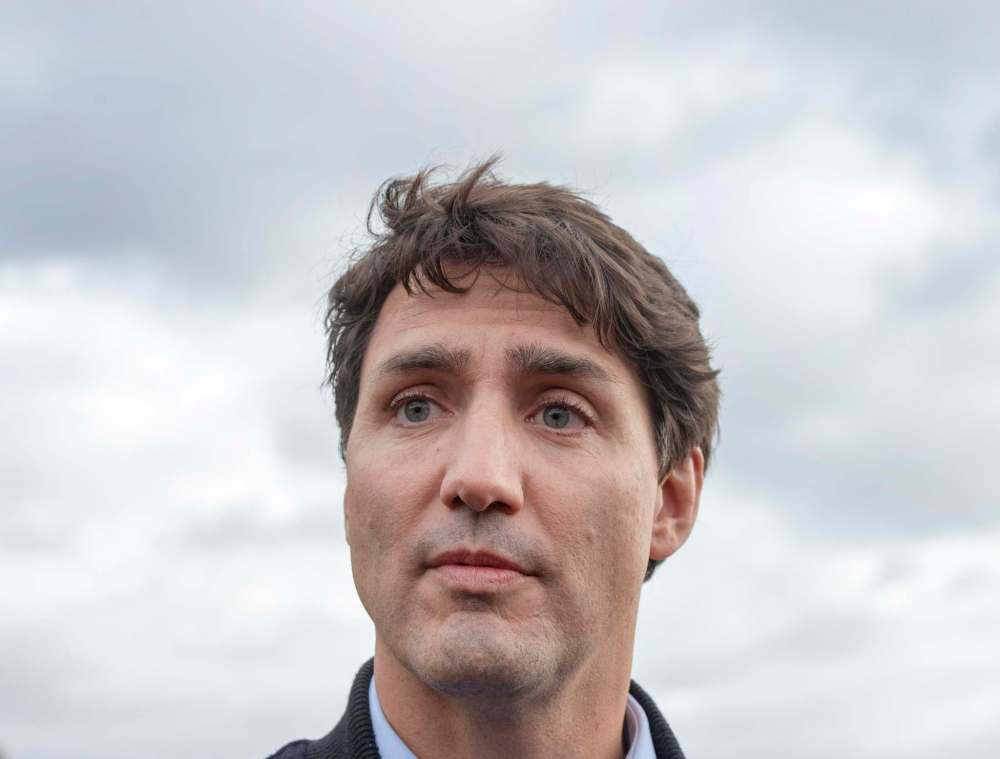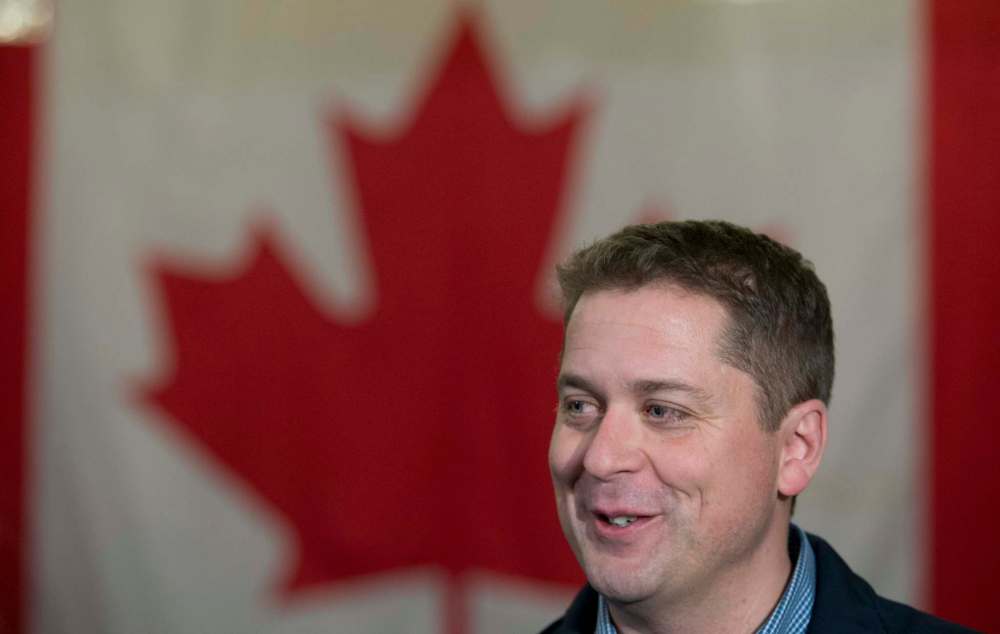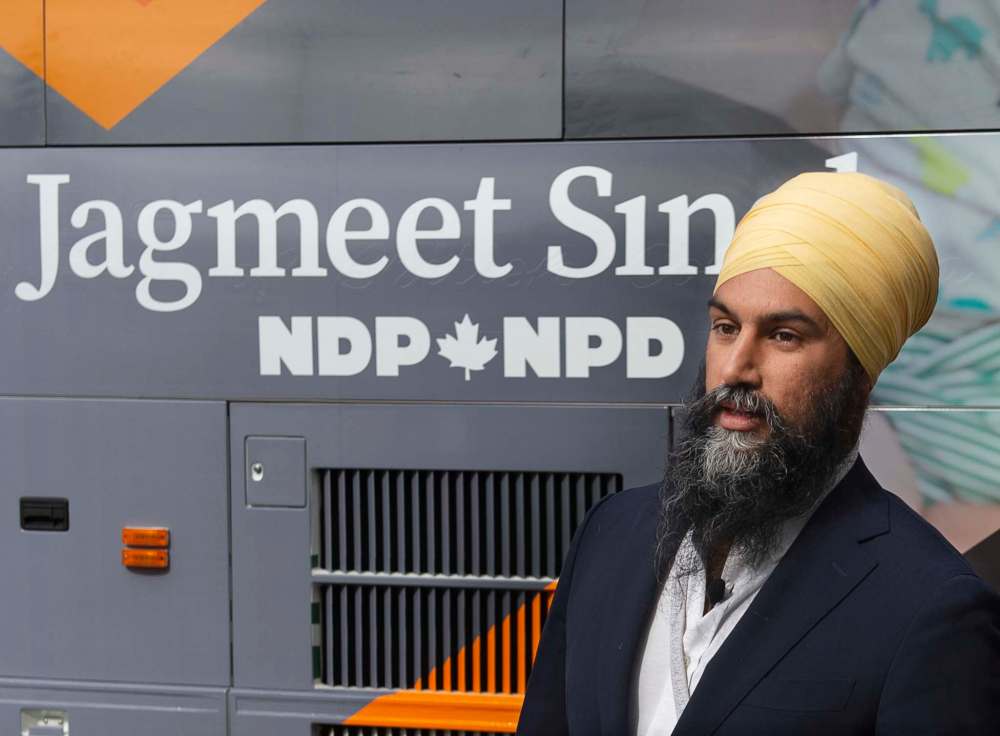Who wins with minority government in the cards?
Read this article for free:
or
Already have an account? Log in here »
To continue reading, please subscribe:
Monthly Digital Subscription
$0 for the first 4 weeks*
- Enjoy unlimited reading on winnipegfreepress.com
- Read the E-Edition, our digital replica newspaper
- Access News Break, our award-winning app
- Play interactive puzzles
*No charge for 4 weeks then price increases to the regular rate of $19.00 plus GST every four weeks. Offer available to new and qualified returning subscribers only. Cancel any time.
Monthly Digital Subscription
$4.75/week*
- Enjoy unlimited reading on winnipegfreepress.com
- Read the E-Edition, our digital replica newspaper
- Access News Break, our award-winning app
- Play interactive puzzles
*Billed as $19 plus GST every four weeks. Cancel any time.
To continue reading, please subscribe:
Add Free Press access to your Brandon Sun subscription for only an additional
$1 for the first 4 weeks*
*Your next subscription payment will increase by $1.00 and you will be charged $16.99 plus GST for four weeks. After four weeks, your payment will increase to $23.99 plus GST every four weeks.
Read unlimited articles for free today:
or
Already have an account? Log in here »
Hey there, time traveller!
This article was published 04/10/2019 (2266 days ago), so information in it may no longer be current.
The results of the Oct. 21 federal election could produce strange bedfellows. It may also have voters returning to the polls sooner rather than later.
With the Liberals and Conservatives locked in a dead heat, it looks increasingly like Canadians will end up with a minority government. Neither party is showing signs of breaking away in public opinion polls, and it doesn’t appear the mudslinging all sides is having much of an impact on voter intentions.
If so, it would be the fourth minority government in 15 years. Tory prime minister Stephen Harper led two of them between 2006 and 2011; Liberal prime minister Paul Martin headed one for 17 months, until his defeat in 2005.

It’s unusual in Canadian politics for a majority government to lose power after only one term in office. The fact Justin Trudeau’s Liberals are in jeopardy of either losing the election or being downgraded to minority status after a single term underscores how off-side they’ve been with Canadians the past four years.
The Liberals took their biggest hit in public opinion polls earlier this year, after revelations Trudeau and senior federal officials attempted to interfere in the criminal prosecution of Montreal-based SNC-Lavalin Group Inc.
Not since the Liberals were defeated in 1984 by Brian Mulroney’s Progressive Conservatives has a majority government lost after only one term in office.
What’s less certain this time around is which party will win enough seats to form a minority. Right now, it’s looking more like a Liberal minority than a Conservative one.
While the two parties are virtually tied in popular support, it appears the Liberals’ more efficient vote will translate into a greater number of seats than the Tories (whose support is heavily concentrated in the West).
A party needs 170 of 338 seats in the House of Commons to form a majority; neither the Liberals nor Conservatives are expected to reach that threshold. The party that wins the most seats would likely form a minority government, but would need the support of at least one major party to survive confidence motions (including budget votes).
That’s where things could get interesting — especially for the NDP.

The NDP and its leader, Jagmeet Singh, are not doing well in this election. They will almost certainly see their seat count fall, including significant losses in Quebec. But they may retain enough seats — 15 to 20 — to hold the balance of power should either the Liberals or Conservatives win around 150 seats.
If the most likely outcome is a minority Liberal government, with the NDP holding the balance of power, it would probably produce some of the most left-leaning policies Canadians have seen in a long time. In return for supporting government on key votes, the NDP would almost certainly make a number of expensive social policy demands.
Would the NDP be as likely to support an Andrew Scheer-led minority government? That’s a big question mark.
The NDP probably wouldn’t want an election any time soon if the government was defeated on a confidence vote (mainly because its electoral fortunes wouldn’t change much). As a result, it may be inclined to co-operate with government — even a Conservative one — in the short term.
Then, there’s the Bloc Québécois. The separatist party is enjoying a resurgence in Quebec and the result could be a rise from 10 seats at dissolution, to 15-20. It, too, could be a kingmaker in a minority government.
That would be the strangest of bedfellows — for either the Liberals or Conservatives — since the Bloc’s demands would necessarily revolve around Quebec interests. It’s hard to imagine such an arrangement not fuelling further regional divisions.

The Green party isn’t likely to win enough seats to hold the balance of power in a minority setting. The only way that could happen is if the Liberals or Conservatives got close enough to the 170 mark they would only need the support of five or 10 seats from the Greens.
Either way, since minority governments in Canada tend to last only a couple of years or so, voters could be returning to the polls sooner than they think.
tom.brodbeck@freepress.mb.ca

Tom Brodbeck is an award-winning author and columnist with over 30 years experience in print media. He joined the Free Press in 2019. Born and raised in Montreal, Tom graduated from the University of Manitoba in 1993 with a Bachelor of Arts degree in economics and commerce. Read more about Tom.
Tom provides commentary and analysis on political and related issues at the municipal, provincial and federal level. His columns are built on research and coverage of local events. The Free Press’s editing team reviews Tom’s columns before they are posted online or published in print – part of the Free Press’s tradition, since 1872, of producing reliable independent journalism. Read more about Free Press’s history and mandate, and learn how our newsroom operates.
Our newsroom depends on a growing audience of readers to power our journalism. If you are not a paid reader, please consider becoming a subscriber.
Our newsroom depends on its audience of readers to power our journalism. Thank you for your support.





















